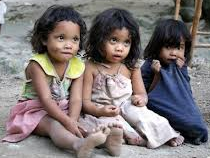Where Did We Get the Idea of “God?”

Google Image People searching for God have probably asked themselves this question at one time or another. And the short answer is, it depends on whose god you’re talking about. Worship of a god or gods is shrouded in the cloud of history, or rather, pre-history. The concept of God as most modern people envision him/her results from any of three abstract ideas or their combination, according to Wikipedia, and of course, the Bible, the Koran and similar sacred books. The abstractions range from God as “… the deification of an esoteric, mystical or philosophical entity or category” to God as the “Ultimate,” the “greatest good,” the “absolute infinite” the “Transcendent," to God as “the ground of being.” Many may not be familiar with these concepts because they originate in the philosophical world of Greek philosophers like Aristotle, who lived in the fourth century before Christ (BC). At some point – definitively with the ideas of Thomas Aquinas in the 13 th century...



